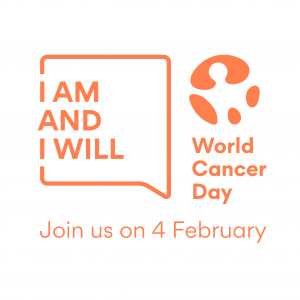World Cancer Day Reflections from Lisa Richardson, MD, MPH
Posted on by
World Cancer Day, observed annually on February 4, raises worldwide awareness about cancer. In this blog post, Lisa C. Richardson, MD, MPH, answers a few questions on how far we have come in lowering the number of cancer cases and deaths and about the future of cancer prevention.
Let’s kick this off with a little introduction. This year’s World Cancer Day theme, “I am and I will,” is a call to action for personal commitment. Who are you and what will you do in honor of World Cancer Day?
I’m Dr. Lisa Richardson, a clinical oncologist and director of CDC’s Division of Cancer Prevention and Control, and I will continue to work toward a world where all people are free of cancer.
When you reflect on how far we’ve come in cancer prevention and treatment, what are you most proud of?
I’m very proud of what CDC has done to help improve cancer prevention, early detection, and treatment. We’ve also made big strides in raising public awareness about cancer and in educating people with cancer.
I continue to be proud of our national programs, like the National Breast and Cervical Cancer Early Detection Program and the Colorectal Cancer Control Program, that reach those in need. Our nationwide campaigns—Bring Your Brave, Screen for Life, and Inside Knowledge use personal stories and real situations to show people how important it is to know your family health history, understand cancer symptoms, and get the right cancer screening. These efforts are helping save lives.
But we’re far from being done with our work—we’re just at a launching point for the next phase! We will continue to focus our efforts on preventing cancer, on making sure all people get the right care at the right time for the best outcome, and on helping cancer survivors live longer, healthier lives.
What are the biggest challenges we face?
I think one of our biggest challenges is making sure people get the right messages. There is a lot of information about cancer out there, about when to be screened and for what, and it can be overwhelming. We want to make sure we reach the right people, at the right time, with information that is easy to understand.
Another challenge we face is that not everyone has benefitted equally from the progress we’ve made in the cancer field. Some people have been left behind, whether it be different racial and ethnic groups, those living in rural areas, or those with limited resources. It’s imperative that our efforts are focused on benefiting everyone.
What can people do to prevent cancer?
Each of us can do something to lower our risk of cancer. If you use tobacco, quitting can lower your risk for many types of cancer. A healthy diet and regular physical activity can also help lower your risk for cancer. We can talk to our doctors about what screening tests we may need. These are just a few of the things we can do. Learn more about what you can do to lower your risk of cancer.
What are you excited about in the cancer field?
I’m excited about a lot! Emerging technologies make a big difference for cancer screening and treatment. New communication outlets give us an opportunity to reach more people with timely, accurate information. Finally, greater use of electronic health records is helping us continue to improve cancer reporting in the U.S. These are big opportunities to maximize the most cutting-edge, proven tools.
Learn more about CDC’s Division of Cancer Prevention and Control and cancer prevention resources.
Posted on by

